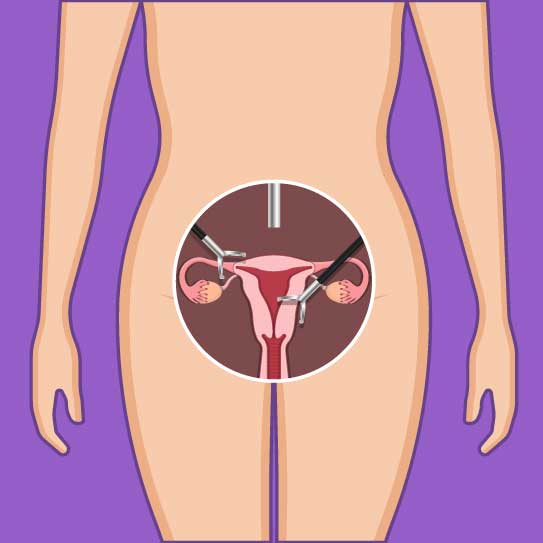
Select City
Pristyn Care is one of the trusted and reliable surgical providers. Our aim is to provide a seamless surgical experience to all patients at an affordable price. We provide advanced medical treatment and various gynecological surgeries, including uterus removal. Listed below are some reasons to choose Pristyn Care for uterus removal surgery in Bangladesh.

![function at() { [native code] }](https://img.pristyncare.com/treatment%20section%2Fsection-1%2FHysterectomy-Surgery.jpg)
Diagnosis and Treatment for Uterus Removal Surgery
Before uterus removal surgery, diagnostic tests may be performed to identify the underlying cause and to understand the severity of the condition. Some of the common tests that gynecologists recommend include:
The diagnostic tests may vary depending on the individual case and the preferences of the doctor performing the procedure. It is important to discuss any concerns or questions with the gynecologist and follow their recommendations for diagnostic testing.
Uterus removal, also known as a hysterectomy, is a surgical procedure in which the uterus is removed. There are several different approaches to uterus removal surgery, including:
Here are some tips to follow in order to prepare yourself for uterus removal surgery:
It’s important to follow your gynecologist’s instructions carefully and to ask any questions you may have about the procedure or recovery.
The advantages of a hysterectomy depend on the specific condition being treated and the individual situation. Some potential advantages of a hysterectomy include:
Delivering Seamless Surgical Experience in Bangladesh
Pristyn Care provides consultation for 50+ diseases and treatments such as Piles, Hernia, Kidney Stones, Cataract, Gynecomastia, Circumcision etc. across 3+ major cities in Bangladesh.
Our surgeons spend a lot of time with you to diagnose your condition. You are assisted in all pre-surgery medical diagnostics. We offer advanced laser and laparoscopic surgical treatment. Our procedures are USFDA approved.
A dedicated Care Coordinator assists you throughout the surgery journey from insurance paperwork, to free commute from home to hospital & back and admission-discharge process at the hospital.
We offer follow-up consultations and instructions including dietary tips as well as exercises to every patient to ensure they have a smooth recovery to their daily routines.
It may take 6 to 8 weeks to recover completely after the surgery. However, the recovery period can vary depending on the type of uterus removal surgery.
Listed below are some precautions that you must take to promote healing after the uterus removal surgery:
Here is a list of food items that you must eat for recovery after uterus removal surgery:
Uterus removal surgery is generally considered safe, but like any surgical procedure, it carries certain risks and potential complications. Some of the complications of uterus removal include:
It’s important to note that the risk of complications varies depending on the type of uterus removal surgery, the woman’s age and overall health, and other factors. Women considering uterus removal surgery should discuss the potential risks and benefits of the procedure with their doctor.
If you’re considering uterus removal surgery, it’s important to discuss the procedure with your gynecologist to ensure that you have all the information you need to make an informed decision. Here are some questions to ask your gynecologist:
It’s important to ask these questions and to fully understand the implications of the procedure before making a decision. Your gynecologist should be able to provide you with clear and thorough answers to your questions and help you make an informed decision about your treatment options.